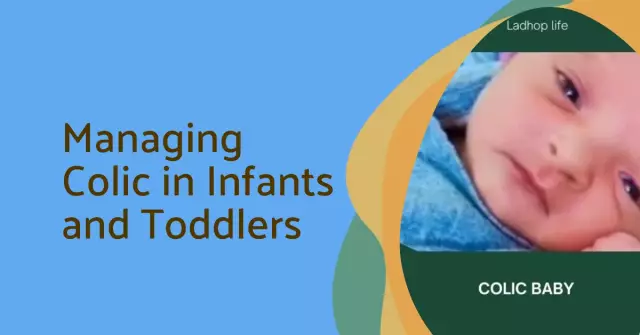- Author Curtis Blomfield blomfield@medicinehelpful.com.
- Public 2023-12-16 20:44.
- Last modified 2025-01-23 17:01.
Practically every person at least once in his life had to endure such an unpleasant condition as colic in the intestines. These are sharp pains in the form of an attack caused by a spasm of the small or large intestine and irritation of the nerve endings in its wall. The causes of intestinal colic can be various diseases and conditions of the abdominal organs. The main ones are:
-

overeating, eating foods rich in fiber, chocolate, strong coffee;
- insufficient enzymatic activity of the stomach and pancreas;
- intestinal infections;
- heavy s alt poisoning metals (lead colic);
- helminthiases and protozoonoses;- nervous shocks, stressful situations.
Also, colic in the intestines can be one of the symptoms of organic diseases of the abdominal cavity, requiring immediate intervention by a surgeon.
Why does my gut hurt?
Mechanisms of intestinal pain are very complex.

Mainly colic in the intestine occurs due to a violation of its patency and disordermotor function. For example, with a decrease or increase in the tone of smooth muscles, acceleration of peristalsis, stretching and spasms of intestinal loops, pain appears.
How does the intestines hurt?
Paroxysmal pain in intestinal colic occurs most often suddenly, against the background of complete well-being. Cutting, cramping pains begin in the lower back and abdomen, after which they shift, they can radiate to the groin. The pain gradually increases, becomes unbearable, after which it gradually fades and the condition is relieved. But after a while the pain comes back. During an attack, the patient is extremely agitated, may moan or even scream. With intestinal colic, irritation of the nerve endings of the peritoneum occurs, so this syndrome is accompanied by bloating and rumbling of the intestine, as well as stool disorder (constipation or diarrhea), nausea and dizziness are often observed. In some cases, the temperature may even rise, then you need to urgently consult a doctor. The duration of an attack can last from several minutes to a day.
What to do when colic occurs?
Treatment of colic in the intestines depends on the cause that provoked it.

During an attack, it is recommended to observe bed rest, at the slightest suspicion of acute surgical pathology (appendicitis, perforation of an ulcer in ulcerative colitis, acute intestinal obstruction), putting a heating pad on the stomach is strictly prohibited. It is necessary to take an antispasmodic, for example, no-shpu or papaverine. If you have colic in the intestines, you canmassage the stomach with light movements in a clockwise direction. To speed up the release of gases from the intestines, herbal teas with an antispasmodic effect or simply weak black tea without sugar are recommended. If the pain does not subside within a few hours, you should immediately call an ambulance. In some cases, a doctor's help is indispensable!
Take care of your he alth, do not neglect medical help.






